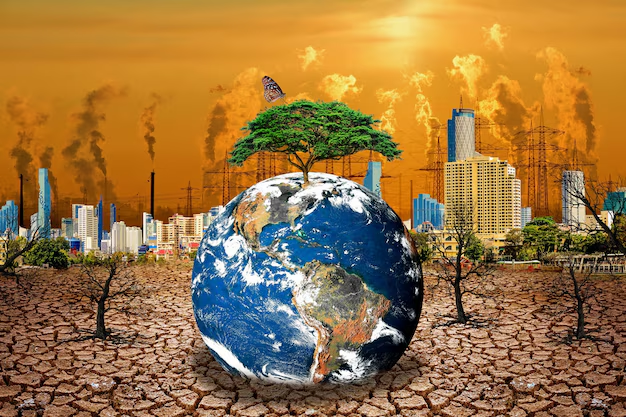
The climate crisis is one of the most pressing issues of our time, affecting every aspect of life on Earth. From extreme weather events to rising sea levels and disruptions in biodiversity, the impact of climate change is evident in communities across the globe. It is no longer a distant threat but a reality that demands urgent action. The role of humanity in driving this environmental shift is undeniable, and understanding our part in the problem is crucial to finding solutions.
The Human Impact
Human activities, particularly the burning of fossil fuels, deforestation, and industrial agriculture, have significantly contributed to the climate crisis. Carbon dioxide (CO2) and other greenhouse gases are released into the atmosphere through these activities, trapping heat and causing the planet’s temperature to rise. This phenomenon, known as the greenhouse effect, is accelerating the rate of global warming and leading to shifts in weather patterns.
The Effects of Climate Change
The effects of climate change are far-reaching and diverse. Rising temperatures are causing glaciers and ice sheets to melt, contributing to higher sea levels that threaten coastal communities. Droughts and extreme heatwaves are becoming more common, leading to crop failures, water scarcity, and an increase in wildfires. Furthermore, biodiversity is under threat as ecosystems struggle to adapt to rapidly changing conditions.
Our Role in Environmental Change
The role of humanity in this crisis is not just one of causing harm but also one of responsibility. Our actions can either exacerbate the situation or help mitigate the damage. By reducing carbon emissions, protecting natural habitats, and transitioning to renewable energy sources, we can significantly slow the pace of climate change. Small individual actions, such as reducing waste, conserving energy, and supporting sustainable practices, can collectively have a profound impact on the environment.
Governments, businesses, and individuals all have a part to play. Policies aimed at reducing emissions, investing in clean energy technologies, and fostering sustainable development are essential. At the same time, consumers must push for eco-friendly products and practices and adopt lifestyles that minimize their environmental footprint.
7 FAQs About Climate Change
1. What is the greenhouse effect? The greenhouse effect occurs when gases like carbon dioxide trap heat from the sun in the Earth’s atmosphere, causing the planet’s temperature to rise.
2. How does climate change affect weather patterns? Climate change disrupts weather systems, leading to more extreme weather events such as storms, floods, droughts, and heatwaves.
3. Can climate change be reversed? While some effects are irreversible, it is possible to slow down the progression of climate change through concerted global efforts to reduce emissions and transition to sustainable energy sources.
4. How does deforestation contribute to climate change? Forests act as carbon sinks, absorbing CO2 from the atmosphere. When trees are cut down, this process is disrupted, and more CO2 is released into the atmosphere.
5. What is the role of renewable energy in combating climate change? Renewable energy sources like solar, wind, and hydropower produce little to no greenhouse gas emissions and are critical in reducing reliance on fossil fuels.
6. What can individuals do to fight climate change? Individuals can reduce their carbon footprint by using energy-efficient appliances, reducing waste, driving less, and supporting sustainable businesses.
7. Why is biodiversity important in the context of climate change? Biodiversity helps maintain ecosystem balance. When species are lost due to climate change, ecosystems become less resilient to environmental stress.
Conclusion
The climate crisis is a global challenge that requires immediate and sustained action. Understanding our role in environmental change is the first step toward finding solutions. By making conscious choices in our daily lives, supporting policies that prioritize the environment, and investing in sustainable technologies, we can contribute to the fight against climate change. The future of the planet depends on the collective efforts of individuals, governments, and organizations worldwide.
